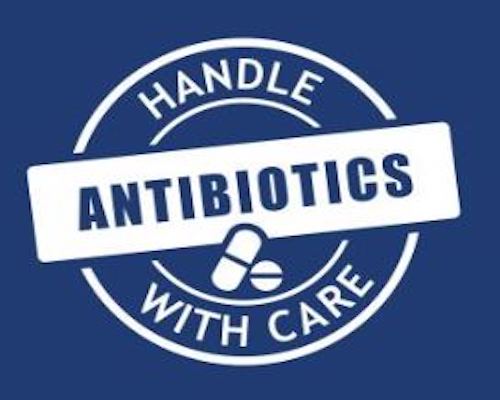World Antibiotic Awareness Week (12-18 November 2018)
This week is World Antibiotic Awareness Week (WAAW), a global campaign that aims to increase awareness of antibiotic resistance and to encourage best practices among the general public, health workers and policy makers to avoid the further emergence and spread of antibiotic resistance.
Geneva, November 12, 2018 :
The report finds wide discrepancies in consumption rates between countries, ranging from approximately 4 defined daily doses (DDD)/1000 inhabitants per day to more than 64 DDD. The large difference in antibiotic use worldwide indicates that some countries are probably overusing antibiotics while other countries may not have sufficient access to these life-saving medicines.
WHO’s European Region, which supplied the most complete data for the report, had a median consumption of 17.9 DDD/1000 inhabitants per day with an almost 4-fold difference between the lowest- and highest-consuming country in the region.
“Overuse and misuse of antibiotics are the leading causes of antimicrobial resistance. Without effective antibiotics and other antimicrobials, we will lose our ability to treat common infections like pneumonia,” says Dr Suzanne Hill, Director of the Department of Essential Medicines and Health Products at WHO. “Findings from this report confirm the need to take urgent action, such as enforcing prescription-only policies, to reduce unnecessary use of antibiotics.”
Types of antibiotics used
The report finds that amoxicillin and amoxicillin/clavulanic acid are the most frequently used antibiotics worldwide. These medicines are recommended by WHO as first or second-line treatment for common infections and belong to the “Access” category of the WHO Model List of Essential Medicines. In 49 countries, the Access category represents more than 50% of antibiotic consumption.
Broad-spectrum antibiotics, such as third-generation cephalosporins, quinolones and carbapenems, are categorized as “Watch” antibiotics that should be used with caution because of their high potential to cause antimicrobial resistance and/or their side-effects. This report shows a wide range in consumption of antibiotics in the Watch category, from less than 20% of total antibiotic consumption in some countries to more than 50% in others.
“Reserve” group antibiotics, which should only be used as last-resort antibiotics for treatment of specific infections caused by multidrug-resistant bacteria, account for less than 2% of total antibiotic consumption in most high-income countries and were not reported by most low- and middle-income countries. This may indicate that some countries may not have access to these drugs that are necessary for treatment of complicated multidrug-resistant infections.
Essential data for countries
Reliable data on antibiotic consumption is essential to help countries to raise awareness of appropriate antimicrobial use, to inform policy and regulatory changes to optimize use, to identify areas for improvement and monitor the impact of interventions, and to improve the procurement and supply of medicines.
In collecting data for this report, the health authority of Côte d’Ivoire detected weaknesses in the management of medicine supply. As a result, it introduced a system to assign unique codes to authorized medical products to improve the tracking of medicines, and also helped accelerate the development of a national action plan to combat antimicrobial resistance. Other countries, such as Bangladesh, plan to use consumption data to improve quality assurance of medicines by prioritizing quality controls for the most sold products and packages. Some countries, such as Burkina Faso, have expanded their surveillance systems to include data from health care facilities.
Improving data on antibiotic use
Data presented in this first report varies widely in quality and completeness. While the European Region and some well-resourced countries have been collecting data on antibiotic use for many years, many countries face major challenges, including lack of funds and trained staff, in collecting reliable data.
Since 2016, WHO has been supporting 57 low- and middle-income countries to set up standardized systems to monitor antibiotic consumption. Sixteen of these countries have contributed to this first report and many more are expected to contribute to the global data in the next few years.
From 2019, antimicrobial consumption data will be integrated into WHO’s Global Antimicrobial Resistance Surveillance System (GLASS) IT platform to provide a single place for data on both consumption and resistance.
WHO methodology was developed to align with OIE’s (World Organisation for Animal Health) global database on the use of antimicrobials in animals. This alignment will enable comparison of antibiotic use between the human and animal sector in the future.
Limited access to antibiotics
Drug-resistant infections can also result from poor access to antimicrobials. Many low- and middle-income countries have high mortality rates from infectious diseases and low rates of use of antibiotics. Resistance can occur when people cannot afford a full course of treatment or only have access to substandard or falsified medicines.
Low consumption levels in some countries may indicate that people have limited access to these medicines but may also indicate weak systems for the supply of antibiotics. In many countries, the lack of access to quality assured antibiotics drives people to buy antibiotics without a prescription on the informal market, which is not currently captured by the surveillance system. The unregulated sales of antibiotic contribute to the overuse and misuse of these medicines.





















